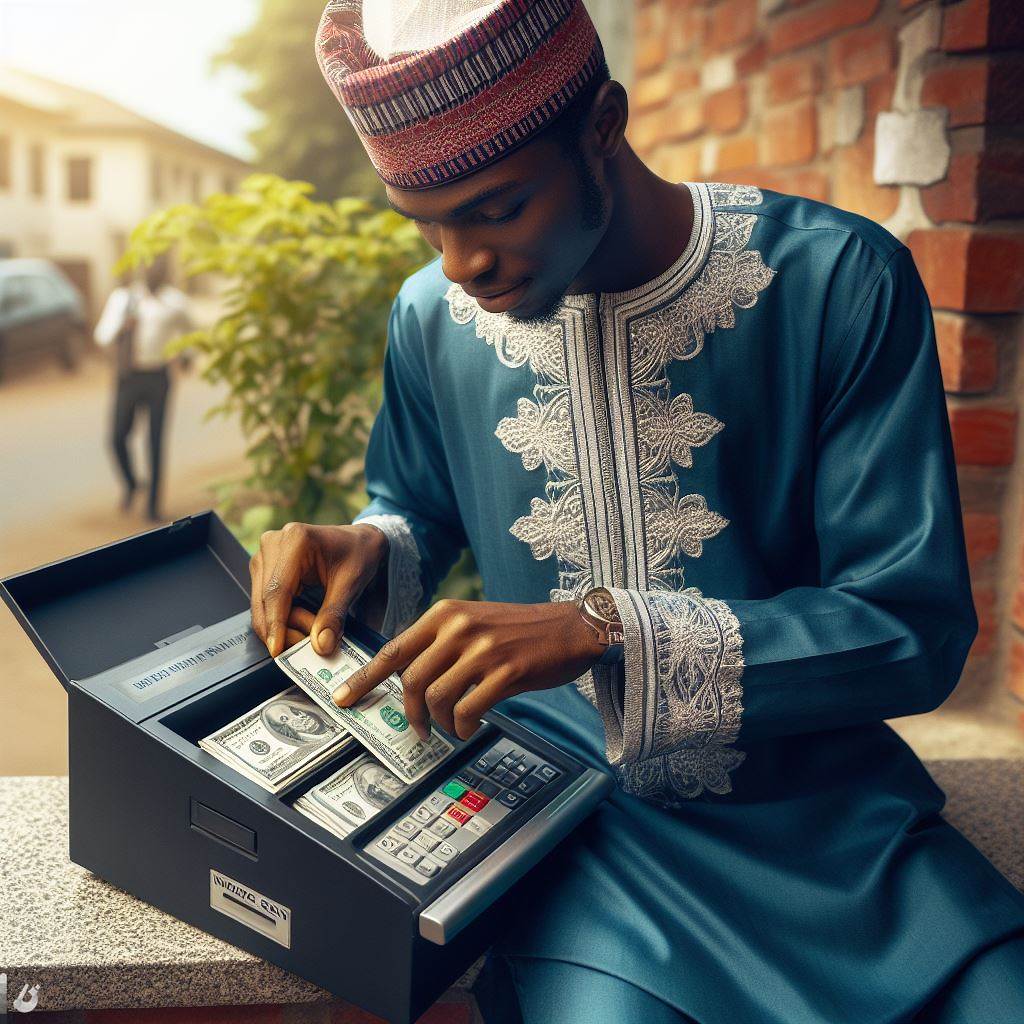Introduction
In Nigeria, the perpetual dilemma of renting versus buying warrants a closer inspection.
This blog delves into the intricacies of a 10-year financial analysis, providing clarity to those navigating the real estate landscape in Nigeria.
Understanding the long-term financial implications is pivotal for individuals seeking to make sound and informed decisions in the dynamic Nigerian real estate market.
Balancing the benefits and drawbacks of renting and buying over an extended period is crucial, given the economic nuances and ever-changing property landscape.
This analysis aims to equip readers with a comprehensive understanding of the potential costs associated with each option, facilitating more astute and forward-thinking decisions.
As Nigeria’s real estate sector continues to evolve, this exploration serves as a timely guide for expatriates and locals alike, navigating the intricate web of financial considerations that come with choosing between renting and buying a property.
Read: Real Estate Growth: Predictions for Nigerian Land
Renting in Nigeria
Renting a property in Nigeria has numerous advantages and disadvantages that individuals should consider before making a decision.
This blog section will explore the benefits and downsides of renting in Nigeria over a 10-year period.
Advantages of Renting
Flexibility and mobility
One of the significant advantages of renting in Nigeria is the flexibility it offers.
Renters have the freedom to easily relocate to different neighborhoods or cities without the burden of selling a property.
This flexibility is especially beneficial for individuals who frequently change jobs or prefer to explore different areas.
Lower upfront costs
Renting requires a smaller initial payment compared to the substantial down payment needed for purchasing a property.
This lower upfront cost provides more financial flexibility and makes renting more accessible for individuals who may not have substantial savings.
Maintenance responsibility on the landlord
Renters are relieved from the financial responsibilities of property maintenance.
Your Personalized Financial Plan
Get expert financial advice tailored exclusively to your goals. Receive a custom roadmap in just 1-3 business days.
Get StartedThe landlord generally assumes the costs and obligations associated with repairs, renovations, and general upkeep of the rented property.
Disadvantages of Renting
Lack of ownership and equity
Perhaps the most significant drawback of renting in Nigeria is the absence of ownership and the ability to build equity.
Unlike homeowners, renters do not accumulate property value over time.
They are essentially paying for temporary accommodation without any long-term investment benefits.
Rent fluctuations
Rent prices are subject to fluctuations, which can make budgeting and financial planning challenging for renters.
Landlords may increase the rent periodically, leading to unexpected expenses and uncertainty regarding housing costs.
This lack of stability is a significant concern for individuals who prefer predictable monthly expenses.
Limited customization options
Renters typically have limited customization options for their living space.
They are often restricted from making significant modifications or renovations to the property.
This lack of creative freedom can be frustrating for individuals who wish to personalize their living environment to suit their tastes and preferences.
In fact, renting in Nigeria offers flexibility, lower upfront costs, and puts the responsibility of maintenance on landlords.
However, it also has drawbacks like the lack of ownership, rent fluctuations, and limited customization options.
Individuals must carefully weigh these advantages and disadvantages to make an informed decision based on their personal circumstances and long-term goals.
Read: How to Verify Land Titles in Nigeria Easily
Unlock a Debt-Free Future with Our Unique Strategies
Imagine a life unburdened by debt—a reality we help you visualize and achieve. We offer personalized strategies tailored to your unique situation, guiding you step-by-step toward financial freedom.
Start TodayBuying a property in Nigeria
Buying a property in Nigeria has its advantages and disadvantages. Let’s explore them in detail.
Advantages of buying
Building equity and ownership
When you buy a property in Nigeria, you are not only acquiring a place to live but also making an investment.
Over time, the property’s value can appreciate, allowing you to build equity.
Stability and long-term investment potential
Owning a property provides stability and security. You have the freedom to live in your home without worrying about a landlord’s decisions.
Additionally, real estate is often considered a long-term investment, and property values tend to increase over time.
Ability to customize and personalize
Buying a property gives you the opportunity to customize and personalize your space.
You can renovate, decorate, and make changes according to your preferences.
Unlike renting, where you may have restrictions, as a homeowner, you have the freedom to create a home that reflects your style and taste.
Disadvantages of buying
High upfront costs (down payment, legal fees, etc.)
Buying a property requires a significant financial commitment upfront. You need to pay a down payment, legal fees, and other associated costs.
These upfront costs can be a barrier for many individuals who may not have immediate access to a large sum of money.
Maintenance and repair responsibilities
As a homeowner, you are responsible for the maintenance and repair of your property.
This includes routine maintenance tasks, such as plumbing and electrical repairs, as well as major renovations when necessary.
These expenses can add up over time and require ongoing financial commitment.
Potential depreciation in property value
Property values are subject to market fluctuations. While property values generally tend to appreciate over time, there is always a risk of potential depreciation.
Unlock Untapped Nigerian Wealth with Our Expert Advice
Imagine accessing investment opportunities others overlook—stocks, bonds, real estate, small businesses tailored to you. We offer personalized advice you won't find elsewhere, guiding you to financial success.
Unlock WealthEconomic factors, changes in the neighborhood, or other external factors can cause property values to decrease.
This could lead to a loss of investment if you plan to sell the property in the future.
In essence, buying a property in Nigeria offers advantages such as building equity, stability, and the ability to personalize your space.
However, it also comes with disadvantages such as high upfront costs, maintenance responsibilities, and the risk of potential depreciation.
Before making a decision, it is important to consider your financial situation, long-term goals, and personal preferences to determine whether buying or renting is the right choice for you.
Read: Investment Savvy: Key to Financial Health

Cost analysis: Rent vs Buy over a 10-year period
When considering whether to rent or buy a property in Nigeria, it is essential to conduct a thorough cost analysis over a 10-year period.
Various factors should be taken into account to make an informed decision.
Variables to consider
- Average rent prices in Nigeria: Understanding the average rental prices in different regions of Nigeria is crucial in determining the overall cost of renting. It provides a baseline for comparing against mortgage payments.
- Property purchase prices in different locations: Researching property prices in the desired locations helps determine the cost of purchasing a home. It is important to consider the potential for property value appreciation in those areas.
- Monthly maintenance and utility costs for homeowners: Owning a home comes with additional expenses such as maintenance and utility costs. These recurring charges should be factored into the cost analysis to determine the long-term financial impact.
- Financing options and interest rates for homebuyers: Exploring financing options and comparing interest rates is essential for potential homebuyers. This information helps calculate the total mortgage cost and make an accurate cost comparison.
Calculating the total cost of renting for 10 years
- Annual rent expenses: Calculating the annual rent expense involves multiplying the average monthly rent by 12. This provides an estimation of the total cost of renting a property for one year.
- Potential rent increases: Considering the possibility of rent increases over a 10-year period is vital. Historical data on rental market trends can offer insights into potential future rent hikes.
- Opportunity cost of not building equity: Renting means missing out on the opportunity to build equity in a property. This potential opportunity cost should be factored into the cost analysis, as homeownership can provide long-term financial benefits.
Calculating the total cost of buying for 10 years
- Down payment and financing costs: When buying a property, a down payment is required. Additionally, there are financing costs associated with obtaining a mortgage. These expenses should be considered when calculating the total cost of buying over a 10-year period.
- Monthly mortgage payments: Mortgage payments consist of principal and interest. Calculating the total monthly mortgage payment over the course of 10 years provides insight into the financial commitment of homeownership.
- Property appreciation potential: Property values can increase over time, providing potential appreciation. Evaluating the historical data and future potential for property appreciation in the desired location is crucial when comparing the cost of buying to renting.
Comparison of the total costs: Renting vs Buying
- Assessing financial outcomes and implications: After calculating the total costs of renting and buying over a 10-year period, it is essential to assess the financial outcomes. This analysis helps determine which option is more financially advantageous.
- Considering personal circumstances and goals: Besides financial considerations, personal circumstances and long-term goals should also be taken into account. Factors such as stability, flexibility, and the desire for homeownership influence the decision between renting and buying.
In general, conducting a comprehensive cost analysis when deciding between renting and buying a property in Nigeria is crucial.
By considering the variables mentioned and comparing the total costs over a 10-year period, individuals can make an informed decision that aligns with their financial and personal goals.
Read: Balancing Car Age and Upkeep Costs
Conclusion
In this comprehensive analysis, we delved into the intricate dynamics of renting versus buying property in Nigeria.
Unveiling critical insights, we elucidated on the financial implications of both choices.
Crucially, our 10-year cost analysis showcased the nuanced facets of this decision-making process.
Beyond the surface, it’s imperative to recognize the long-term financial repercussions that may be obscured in the initial excitement.
Before leaping into a commitment, introspection is paramount. Consider your financial landscape, aspirations, and circumstances.
Tailoring your decision to align with these factors ensures a more sustainable and gratifying outcome.
This exploration is just the tip of the iceberg. The rent versus buy conundrum is ever-evolving. Share your insights, engage in discourse, and stay informed.
The journey of financial decision-making is ongoing, and the more perspectives, the richer the understanding.
The choice between renting and buying transcends a mere financial decision—it’s a holistic evaluation of your life path.
Take the time to navigate the intricate web of considerations, and may your choice pave the way for a decade of financial fulfillment.




